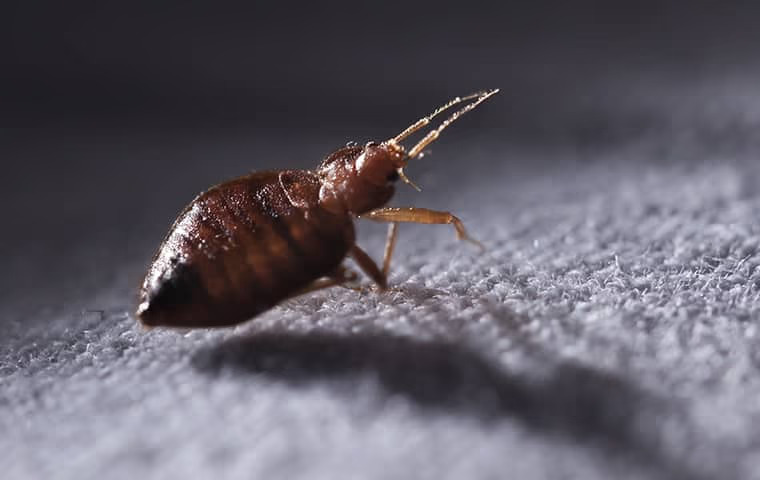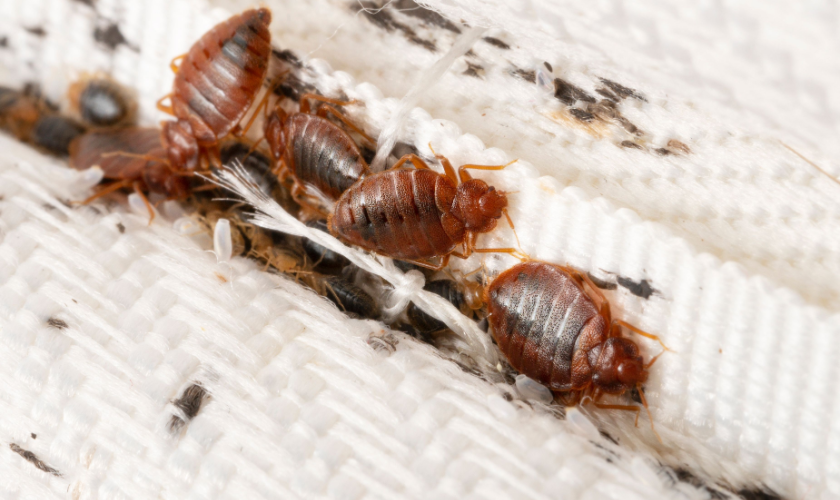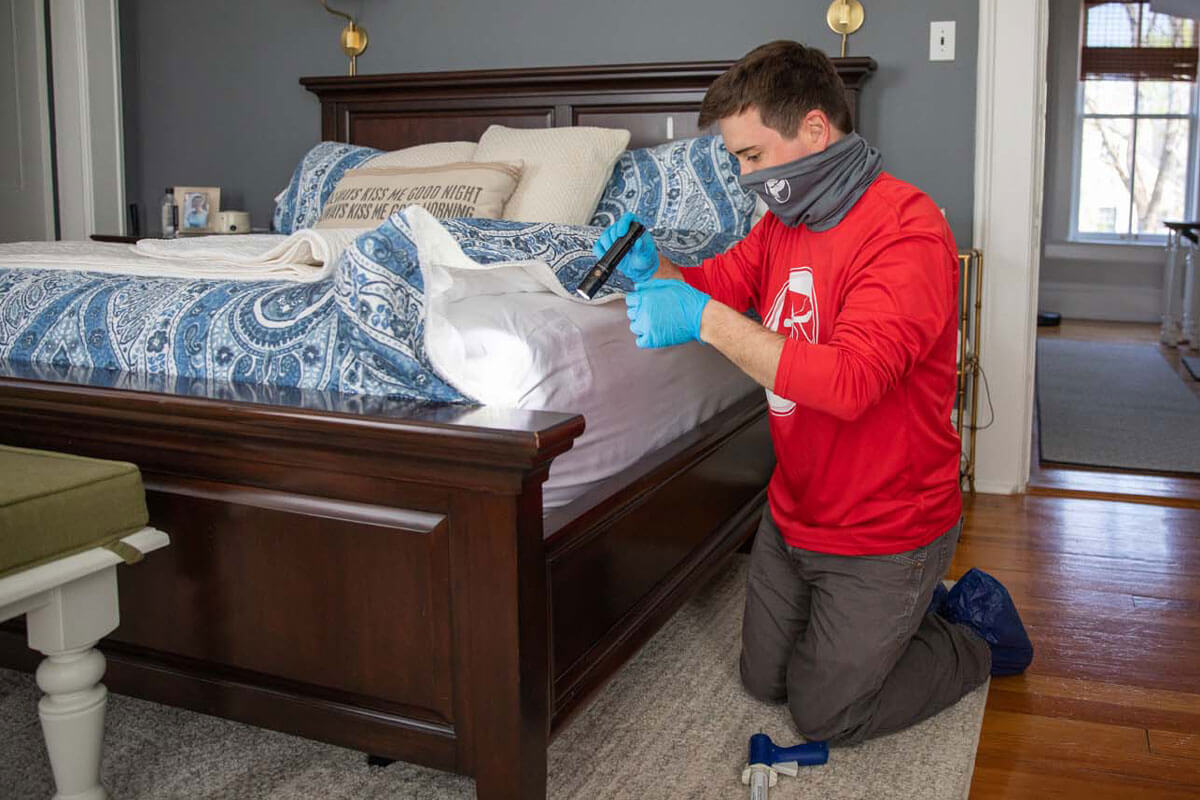Comprehensive Kings Pest Control Services Cincinnati OH
Comprehensive Kings Pest Control Services Cincinnati OH
Blog Article
Types of Pest Control: Which Method Is Right for Your Invasion?
When faced with a parasite invasion, the choice of an ideal method for parasite control is critical in properly handling the scenario. From chemical treatments to biological remedies, there exists a range of approaches that can be employed to address different kinds of pests. Each method comes with its very own collection of benefits and considerations, making the decision-making procedure a nuanced one. Comprehending the subtleties of each approach and examining their compatibility with the specific pest infestation handy is necessary for accomplishing long-lasting success in parasite management. By checking out the different kinds of insect control techniques offered, individuals can make enlightened decisions tailored to their special scenarios, making sure a much more effective and sustainable outcome in bug eradication.
Chemical Pest Control
Chemical bug control includes the use of artificial or normally derived chemicals to handle and get rid of pest populaces properly. This technique is commonly used in agriculture, forestry, and property setups to battle a large range of parasites, including rodents, pests, and weeds. The usage of chemical pesticides can offer fast and targeted solutions to pest invasions, making it a prominent selection for lots of individuals and services.
Among the key advantages of chemical parasite control is its ability to swiftly remove pests, minimizing the threat of damages to plants, residential property, and human health. By making use of certain chemicals that target particular pests, this technique can effectively control invasions while minimizing harm to valuable microorganisms and the environment when used correctly.
However, using chemical bug control also raises worries concerning potential unfavorable results on non-target species, water sources, and human health. It is crucial to follow safety and security guidelines, apply chemicals properly, and think about alternate insect control approaches to decrease these threats and guarantee sustainable pest administration practices.
Biological Pest Control
Organic pest control, also called biocontrol, uses living organisms to decrease and take care of insect populaces naturally. This technique utilizes the power of nature to control insects without the need for synthetic chemicals. Biocontrol can involve the intro of all-natural enemies of the parasite species, such as virus, killers, or bloodsuckers, to suppress bug populations. By using the pest's natural predators or virus, biological bug control provides a lasting and environmentally pleasant service to pest management.

Mechanical Pest Control
Using hands-on and physical approaches to manage parasite populations, mechanical insect control uses an alternate technique that does not depend on the usage of living microorganisms or synthetic chemicals. This approach includes using barriers, catches, or other devices to physically prevent or get rid of parasites. By obstructing insect entry factors or establishing up catches to capture them, webpage mechanical parasite control can properly reduce problems without presenting chemicals into the setting.
One usual example of mechanical pest control is the use of mesh screens on windows and doors to stop bugs from going into buildings. This basic yet effective method serves as a physical barrier, maintaining bugs out while enabling correct ventilation. Furthermore, gadgets like mousetraps, fly swatters, and ultrasonic repellents fall under the mechanical pest control category.
While mechanical pest control methods can be labor-intensive and require regular surveillance and maintenance, they use a eco pleasant and lasting option for taking care of parasite problems. By combining various mechanical techniques, home proprietors can create a comprehensive insect control method that lessens reliance on chemical pesticides.
Physical Bug Control

Some typical physical bug control methods consist of using barriers such as internet or screens to prevent pest entry, traps to record and remove pests, and hand-picking to physically remove bugs from plants or frameworks. Additionally, strategies like warm treatments can be used to control insects like bed pests by raising the temperature level to levels that are dangerous to the pests.
Physical parasite control is specifically valuable in integrated bug administration (IPM) methods, where numerous bug control approaches are incorporated official site for effective pest management while reducing making use of chemicals. By using physical parasite control methods, individuals can effectively address insect infestations with very little ecological influence.
Integrated Pest Management
When carrying out physical insect control techniques as component of pest administration techniques, Integrated Pest Management (IPM) becomes a thorough technique that leverages different techniques to properly regulate pest populations. IPM concentrates on long-term avoidance of bugs via a combination of organic, social, physical, and chemical tools customized to details pest problems. By integrating numerous control methods, IPM intends to decrease the threats linked with pests while additionally decreasing reliance on chemical services.
One secret facet of IPM is the emphasis on surveillance and analyzing pest populations to figure out the most suitable control methods. This aggressive approach permits early intervention and targeted approaches, causing more reliable pest administration. Additionally, IPM advertises ecologically friendly methods by prioritizing non-chemical control techniques and just using pesticides as a last resource.
Conclusion

By utilizing the insect's natural killers or microorganisms, organic parasite control supplies a sustainable and environmentally friendly remedy to pest administration. - Kings Bed bug exterminator Cincinnati
Utilizing manual and physical techniques to take care of parasite populations, mechanical pest control go to website uses an alternate technique that does not count on the use of living organisms or synthetic chemicals.An effective strategy to managing bug populations without relying on chemical or biological methods entails the usage of physical bug control strategies.When carrying out physical pest control approaches as part of pest management approaches, Integrated Bug Monitoring (IPM) emerges as a comprehensive technique that leverages different methods to efficiently regulate pest populations. Chemical bug control includes the usage of pesticides, biological parasite control makes use of all-natural predators, mechanical insect control entails physical barriers, physical parasite control consists of trapping or removing pests, and incorporated pest administration combines multiple methods for a holistic strategy to pest control.
Report this page